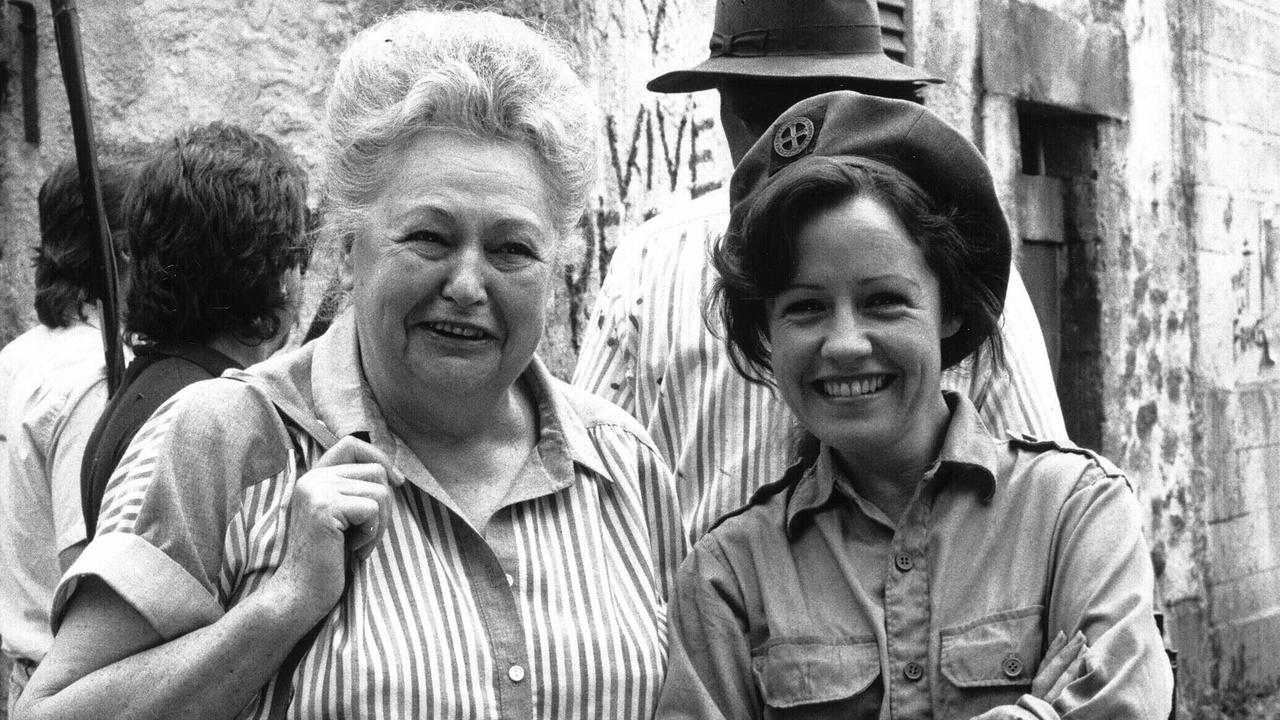Shane Watson: Focus on the things you can fix
Cricket legend Shane Watson turned his own game around by changing his mental approach. In The Winner’s Mindset he reveals how to change your own life – a timely read as Australians settle in for the Boxing Day Test.

Books
Don't miss out on the headlines from Books. Followed categories will be added to My News.
Sometimes team, work, study or school environments can drag you into focusing on results too much, rather than what we call the “A factors” – the things you are in control of.
A factors are your performance and everything that you bring to it. Examples include: your skills, experience, knowledge and fitness; how well rested you are; your nutrition, hydration and energy level; your level of commitment to the task; the effort and focus you bring.
These are very different to things outside your control, like what other people do or think; conditions; rules; and equipment – the “B factors”.
I have experienced plenty of team environments where the leaders talk about how big this game is, how important this game is, and say, ‘If we lose this game, we are out.’ There are also environments where leaders talk about how performance in this game will dictate selection, and that underperformance might lead to players getting dropped.
So guess what people are thinking?

‘Don’t lose. Don’t get out. Don’t bowl badly. Don’t stuff up otherwise I might be gone.’ All of these focus on results and fear of failure.
These environments can work for a shorter period of time where fear of failure can drive individuals to be ready to lock in for one very important game. But it is not sustainable at all, as stress and anxiety build up to a point where the whole team implodes. I have been a part of these environments on a few occasions too.
The telltale signs are that everyone starts to only play for themselves, for their individual spots. This always leads to an incredibly toxic team environment where the enjoyment factor of playing the game that you love evaporates and it turns into every person for themselves.
In some teams I have been with, players were turned over constantly. If a player didn’t perform for a couple of games, selectors would think he wasn’t good enough and would replace him immediately. This meant that everyone started looking over their shoulders and thinking, ‘Gosh, if I don’t perform in a couple of games, then I could be gone too.’
Other environments I have been a part of are ones where there is a clear focus on the process and leaders ask the players to just bring the best version of themselves every time and to do it over and over again. They reiterate that if we all do this, we give ourselves the best chance of coming out on top. This is exactly what a championship mindset looks like!
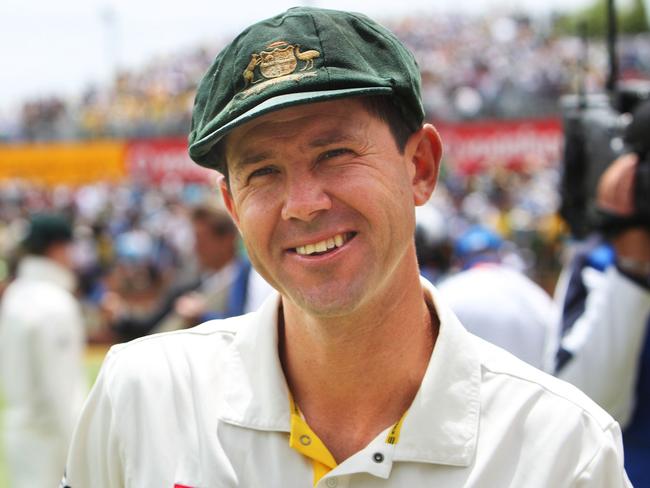
This is what made Ricky Ponting such a good captain. He always said to the team in the lead-up to big games that the team whose individuals do the basics better and for longer will
be the team that will come out on top. It focused our minds on the process, on doing the basics, controlling the A factors.
Paddy Upton for Rajasthan Royals built a process-driven environment that took all of the anxiety and stress out of a very pressurised tournament in the Indian Premier League. This was also done incredibly well at Chennai Super Kings under captain MS Dhoni and coach Stephen Fleming. I never heard either of them say, ‘We need to win this game today’, or ‘If you don’t score runs today or take wickets, you will be getting dropped’.
I’ve been a victim of a negative team environment. After the retirement of Ricky Ponting and Mike Hussey, the Australian team drifted significantly. Pressure to perform began to affect confidence and consistency. Players, myself included, began to look over our shoulders. I didn’t have knowledge of the mental skills I needed to consistently bring the best version of myself into every performance, instead of being overcome with fear of failure and overwhelmed by a need for results, which saw my performances go downhill throughout that time. And this was all at a time where I was in my prime, performing really well in the IPL in an incredibly enjoyable, process-driven team environment. But as soon as I went back into this other environment, my kryptonite, my performances started to tank again and the enjoyment factor of playing the game that I loved evaporated very quickly.

My last three months with the Australia T20 team from early January 2016 through to the T20 World Cup in India was another example of one of those environments. We played India in a three-match T20 International series, where the selectors picked a really big squad and chopped and changed the team significantly from game to game, and then this flowed on to a T20 series in South Africa before we headed to India for the T20 World Cup. The conversations and actions around the group from the leaders – the coach, captain, selectors – had consistent messaging like, ‘All spots are up for grabs if you want to play in the T20 World Cup’ and ‘You need to perform in this game as you might only have one opportunity to press your claim.’
As soon as I heard and saw this, I immediately acknowledged in my own mind what this ridiculous situation was creating.
This time I opted out. I knew the importance of preparation and focus, of distinguishing between factors I can and cannot control. The result was that I bowled as well as I had in T20 cricket for Australia, played one of the games of my life at the SCG as captain, and retired at the end of the T20 World Cup as the No.1 T20I all-rounder in the world.
Surprise surprise, we lost to India in the quarterfinal knockout game. We left a few runs on the table and didn’t execute that well with the ball against an Indian team that had barely changed their XI from the first game that we played against them during the series in Australia, three months before.
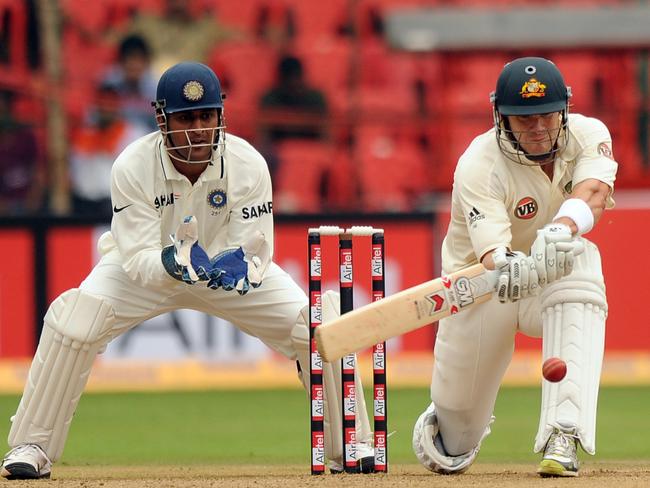
The attitudes I saw in that T20 World Cup are everywhere. I saw it recently in a game of junior cricket, where the parents put too much pressure on the kids and even the calmest child on the field lost the plot after he got out, because he felt he’d let the team down. It was so sad to see.
No matter who we are, we are always going to have times in our lives where we are in a ‘results-focused’ environment. By understanding the mental skills in The Winner’s Mindset, we can learn to say, ‘I am not going to let their results focus influence the correct mindset I need for me to be at my best.’ This can be much easier said than done, but understanding it will be a powerful tool for you to use throughout your life to ensure a negative environment doesn’t infiltrate your thinking and pull you out of your high-performance mindset.
***
The demon of expectation is a beast. Growing up in cricket, the demon of expectation for me was that to be a great batter you needed to score hundreds. All through my teenage years, it was drummed into me and that flowed on into my Test career. When you have that outcome in your mind, as you get closer to the milestone, you start to pay more attention to it and stop focusing on the A factors, the process of execution that got you there.
The following example shows the same patterns of thinking that most often entered my mind ever since I can remember.
It was during a Test match in the 2010–11 Ashes series in Perth. I was batting really well, and
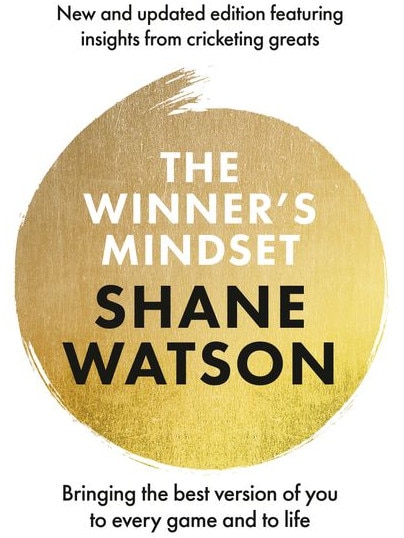
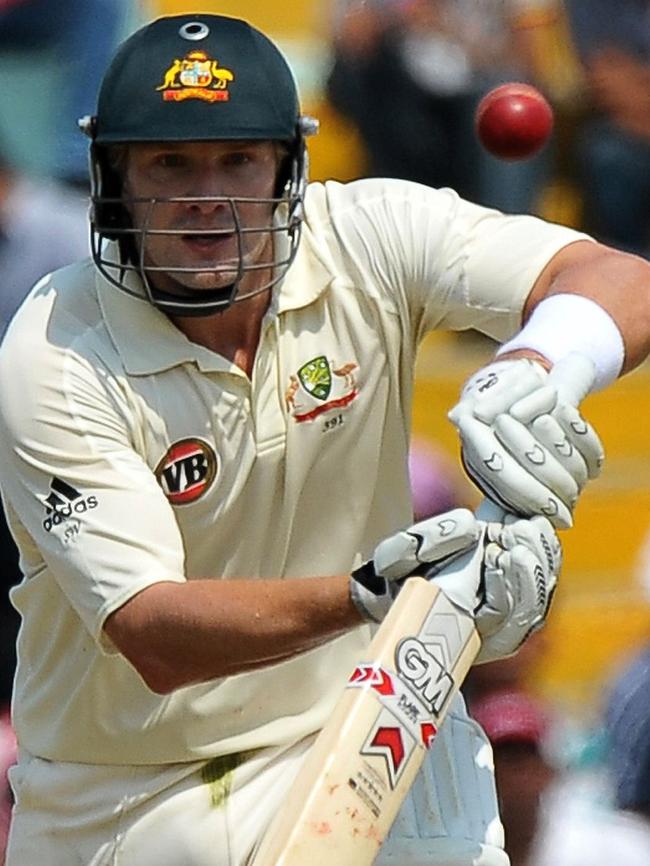
I was on 95. It was a beautiful wicket to bat on and the ball was coming on so nicely as it normally does at the WACA. At this very moment in time I started to think, ‘Wow, this is going to be my first Ashes Test hundred, how am I going to celebrate? How amazing is this going to feel? What am I going to do?’
My mind moved to the outcome, to this expectation that I had always set for myself. ‘I’m going well. I’m nearly there. I am so close to achieving one of the dreams that I have had since I was a kid. How am I going to get to a hundred? With a six or a boundary or just get five singles?’
Whereas up until this moment, I had not been thinking about how I was going to score runs. I was just in the moment, trusting my instincts with aggressive intent, ball after ball. This mindset was what had got me to 95.
I should have been thinking, ‘What do I need to do right now? And what do I need to keep doing to be able to give myself the best chance of getting there?’ But I didn’t know how to stop that mental script that had started to come in and pull myself back into the exact same mindset that had worked so well up to that point.
I ended up getting out LBW to Chris Tremlett. The ball angled into middle stump and I just missed a straight one.
My mind had moved forward to the future and the outcome, instead of just staying present in the execution mode and doing that over and over again, and what would be would be.
Stress and anxiety lie in the gap between where we are currently and what our expectations are. Worrying about that shifts our minds away from being in the present, totally focused and process driven. Instead we start singularly focusing on the result and how big this gap is. And this cruels our ability to close the gap by moving back onto execution.
Yes, we all set goals. I had always dreamt of an Ashes hundred. In business, for example, everyone has set targets. Most of the time, everyone is setting targets or goals that they must achieve to get bonuses or a promotion, for example. Or to achieve high marks in exams or assignments.

All this does is build up this anxiety and stress and focus on results. And particularly if you’re not on target, then everyone starts to freak out. Even if you and your group bring the best A game you can, there might be some B factors out of your control, which impact the results.
The better way to think of targets, expectations, or goals, is to use them as a guide. They are like the mountaintop in the distance, only to be glanced at, because the ability to achieve them can change when B factors influence things that are out of your control. It’s a fine line between results-driven and results-focused. The stress and worry of being results-focused has a huge impact on your ability to achieve your desired outcomes, and even your health. Results-driven, on the other hand, is being very disciplined to do all you can to get the best results possible, which is pulling yourself back to your best A’s.
Interestingly, when I was having all those troubles getting out in the ’90s, I talked to Michael Clarke about it. He said, ‘My goal is actually 150, it’s not 100. So, when I’m in the 90s I don’t care because my goal is to get 150, not 100.’ That’s why he hardly ever got out in the 90s. He just cruised through it. I couldn’t believe how easy he made it look. But he said, ‘My goal is way above that, so I’m just going to continue to focus on what I’m doing.’
This is an edited extract from The Winner’s Mindset by Shane Watson: available now, published by HarperCollins.
Originally published as Shane Watson: Focus on the things you can fix


